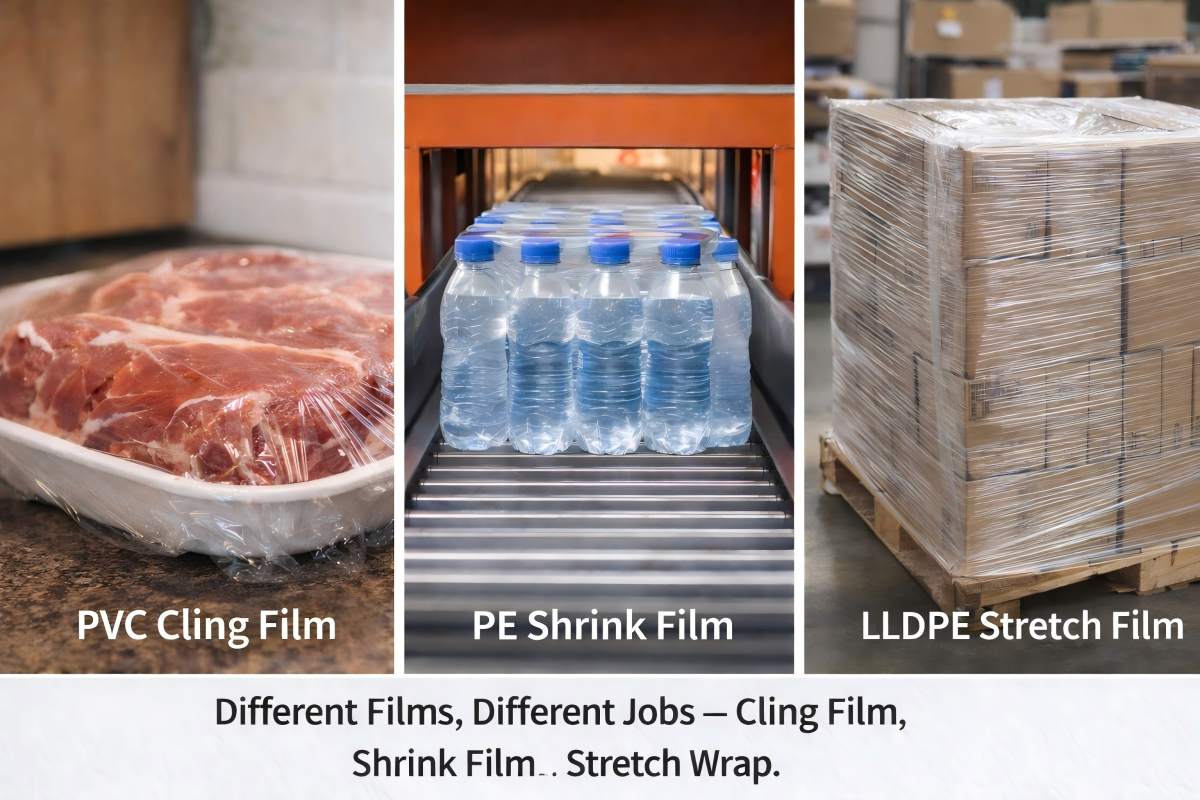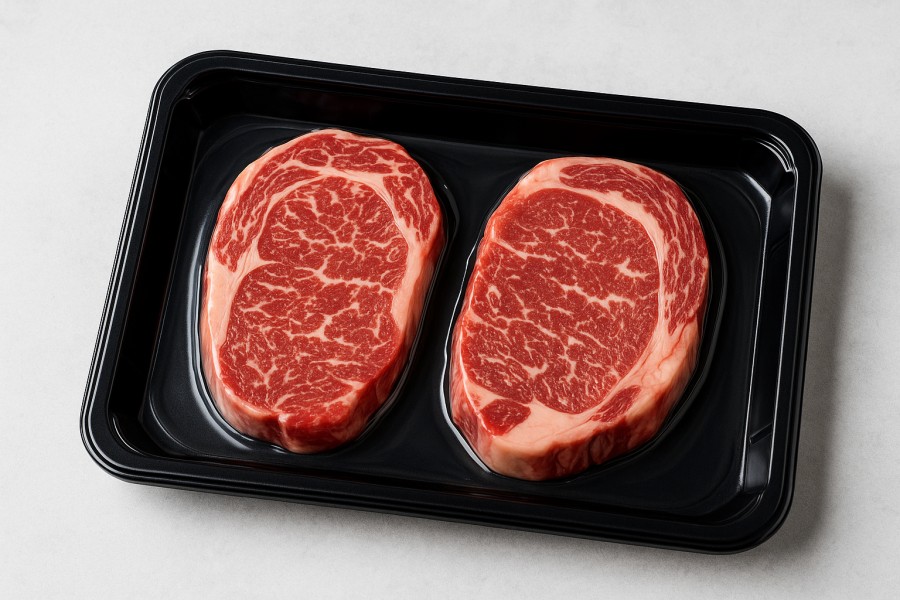If you have ever searched for terms like “LCP film for 5G antenna”, “LCP film supplier in China” or “high-frequency substrate material for RF modules”, you are most likely trying to solve a very specific engineering and sourcing problem:
- How do I get stable performance at GHz frequencies?
- How can I keep thermal and mechanical reliability under harsh conditions?
- Which LCP film manufacturer or supplier can support consistent quality and global delivery?
This guide is written for RF engineers, PCB / FPC designers, sourcing managers, distributors and OEMs who need a practical, specification-driven overview of LCP films. It will help you understand the material, compare it with other high-performance films, and know what to ask when you talk to an LCP film manufacturer or exporter like CloudFilm.
CloudFilm has been manufacturing and supplying flexible films since 2002, serving converters, brands and industrial users in more than 30 countries with BOPP, BOPET, BOPA, PE and speciality films such as LCP film and PEEK film.

What Is LCP Film?
Definition and Material Fundamentals
LCP (Liquid Crystal Polymer) film is a high-performance engineering thermoplastic film. In the melt state, its molecules form an ordered liquid crystalline phase. When the film is extruded and cooled, this ordered structure is largely retained, giving LCP film a unique combination of:
- Very high thermal stability
- Excellent mechanical strength, even at thin gauges
- Very low moisture absorption
- Outstanding dielectric performance at high frequencies
- Intrinsic chemical resistance
Unlike conventional packaging films such as BOPP or BOPET, which are mainly used for food and consumer goods packaging, LCP films sit in the high-end segment of electronics, antennas, aerospace and medical devices.
For detailed product specifications and available series, you can refer to CloudFilm’s dedicated LCP Film product page.
How LCP Film Differs From Standard Polymers
The liquid crystal phase makes LCP films anisotropic: properties can be different in machine direction (MD) and transverse direction (TD). This anisotropy can be engineered to optimize:
- Dimensional stability under heat
- Thermal expansion coefficient (CTE) matching with copper or other metals
- Mechanical properties for bending, forming or vibration
Compared with common packaging materials:
- Vs BOPET film: LCP offers far better high-frequency dielectric performance and lower moisture uptake, but at a higher cost.
- Vs BOPA film: BOPA excels in toughness and gas barrier for packaging, while LCP is designed for electronics and precision parts.
Core Properties of LCP Films
When engineers and buyers evaluate LCP film, they usually care about five main property families.
Thermal Properties
- Continuous use at elevated temperatures: LCP films can operate well above typical packaging films, making them suitable for solder reflow and high-temperature assembly.
- Short-term peaks: They tolerate peak temperatures during lamination or soldering without melting or deformation.
- Low thermal expansion (CTE): This helps match copper or other metals in flexible copper clad laminates (FCCL), reducing warpage and stress.
Electrical and Dielectric Properties
LCP films are widely chosen as substrates in RF and microwave applications because they offer:
- Low dielectric constant (Dk): Enables controlled impedance and faster signal transmission.
- Low dielectric loss (Df): Critical for high-frequency antennas, filters and transmission lines.
- Stable dielectric performance vs temperature and humidity: Ensures consistent RF behavior in real-world environments.
These characteristics are exactly why LCP is increasingly used in 5G antennas, mmWave modules and high-speed interconnects.
Mechanical Strength and Dimensional Stability
Even at thin gauges, LCP films deliver:
- High tensile strength and modulus
- Good flexural fatigue resistance
- Dimensional stability under thermal cycling
This combination allows designers to create thin, light and robust FPC and antenna structures without sacrificing reliability.
Moisture and Chemical Resistance
- Extremely low moisture absorption keeps dielectric properties stable in humid conditions.
- Chemical resistance against many solvents, fuels and industrial fluids makes LCP films suitable for automotive, aerospace and medical environments.
Processability and Lamination
LCP is a melt-processable thermoplastic, which means it can be:
- Extruded as film (including advanced blown-film processes)
- Laminated directly to metals like copper
- Thermoformed and welded under appropriate conditions
CloudFilm uses an advanced LCP blown-film process that is still rare globally, enabling industrial-scale supply of LCP film for demanding applications.

Key Applications of LCP Films
RF and 5G Antennas
In 5G smartphones, base stations and small cells, antennas and RF front-end modules must deliver stable performance in compact, high-density designs. LCP films are used as:
- Substrates for mmWave antenna arrays
- Dielectric layers in RF modules
- Flexible interconnects between components
Low Dk/Df and stable performance vs temperature and humidity make LCP a preferred material when traditional FR-4 or standard PET films are no longer sufficient.
Flexible Printed Circuits and FCCL
For flexible printed circuit boards (FPCBs) and FCCL, LCP films can serve as:
- Base film for copper cladding
- Adhesive or bonding layers (low-melting LCP grades)
- Coverlay materials in high-reliability circuits
In high-density FPCs where bend reliability and impedance control are critical, LCP provides a compelling alternative to polyimide in certain design windows.
Acoustic Films and Earphone Diaphragms
LCP’s combination of high modulus, low internal damping and low mass makes it an ideal diaphragm material in:
- High-end earphones and headphones
- Micro-speakers and acoustic transducers
CloudFilm’s product line already includes LCP films for acoustic vibration and earphone applications on its LCP film page.
Medical Devices and Sensors
Because LCP films offer:
- Biocompatibility
- Chemical stability
- Sterilization resistance
They are used in:
- Implantable or wearable medical sensors
- Surgical tools requiring repeated sterilization
- Microfluidic and biosensor substrates
Aerospace and Industrial Electronics
In aerospace, automotive and industrial control:
- LCP film substrates and insulators withstand heat, vibration and aggressive fluids.
- Their low weight supports lightweight design targets.

LCP Film vs Other High-Performance Films
When choosing a substrate, engineers often compare LCP with polyimide (PI), PEEK, PTFE and BOPET.
Below is a qualitative comparison:
- Vs Polyimide (PI):
- PI has very high thermal stability and is well-known in FPC.
- LCP often offers lower moisture absorption and better high-frequency dielectric performance, making it attractive for RF solutions.
- Vs PEEK Film:
- PEEK film is extremely strong, chemically resistant and suitable for high mechanical load environments.
- LCP tends to offer better RF performance but may have different mechanical and cost profiles.
- For a deeper understanding of PEEK, see CloudFilm’s Comprehensive Guide to PEEK and PEEK Film product page.
- Vs PTFE (Teflon) Materials:
- PTFE offers excellent dielectric performance but can be difficult to process and bond.
- LCP is a thermoplastic that is easier to extrude and laminate in many film-based processes.
- Vs BOPET/BOPA Packaging Films:
- BOPET films are widely used for packaging and electrical insulation, with good mechanical and barrier properties but not optimized for very high RF frequencies.
- BOPA films excel in puncture resistance and gas barrier for food packaging.
- If your main need is flexible packaging, you might be better served by conventional films such as BOPET and BOPA; LCP is targeted at high-end electronics and precision components.
How To Specify LCP Film For Your Project
To get meaningful quotations and technical proposals from an LCP film supplier or manufacturer, you should prepare a clear set of parameters.
Technical Parameters To Define
At minimum, try to define:
- Intended application: e.g. 5G antenna, FCCL, acoustic diaphragm, medical device
- Operating temperature range and environmental conditions
- Target thickness and thickness tolerance
- Required dielectric performance: frequency band, dielectric constant and loss targets
- Mechanical requirements: bend radius, flex cycles, tensile strength needs
- Lamination / processing needs: copper cladding, adhesive layers, surface treatment
- Roll or sheet format: width, core size, maximum OD, typical roll weight
CloudFilm’s article Understanding Packaging Film Parameters: A Comprehensive Guide explains how film parameters translate into performance and line behavior; many of those ideas also help when briefing LCP film requirements.
If you also need to estimate yields and roll weights for project costing, you can refer to Flexible Film Density: Formulas, Tables & Yield, which provides practical formulas and tables for film calculations.
Commercial and Supply Parameters
From a sourcing perspective, you should also discuss:
- Minimum order quantity (MOQ) by grade and width
- Lead times (standard vs custom grades)
- Certification or testing requirements (e.g. RoHS, REACH, biocompatibility, dielectric test reports)
- Packaging, labeling and logistics (export packing, pallets, documentation)
A professional LCP film manufacturer and exporter will be able to advise realistic combinations of thickness, width, and properties based on their production lines.

Market Dynamics: Demand, Supply and Pricing
Demand Drivers
The LCP film market has been growing alongside:
- 5G deployment and RF module upgrades
- Miniaturization in consumer electronics (smartphones, wearables, AR/VR)
- Increased electronics content in vehicles (ADAS, radar, EV power electronics)
- Growth in medical devices and sensors
As RF frequencies increase and devices shrink, conventional substrates struggle to maintain stable performance, driving adoption of LCP-based solutions.
Supply Landscape
LCP film production requires:
- Specialized polymer resins
- Dedicated extrusion lines
- Tight process control
Global capacity is still limited compared with commodities like BOPP or BOPET. Only a small number of manufacturers operate advanced LCP film lines. CloudFilm’s blown-film approach positions it among the relatively few suppliers able to provide LCP film on an industrial scale, especially from China.
For buyers, this means:
- It is important to secure reliable, long-term partnerships with LCP film manufacturers.
- Early engagement on specifications and forecast volumes can improve availability and pricing stability.
Pricing Considerations
Compared with standard packaging films, LCP films:
- Have significantly higher raw material and processing costs
- Are typically sold into high-value applications where total system performance, not just material price, drives decisions
When evaluating offers from different LCP film suppliers, focus on:
- Consistency of dielectric and mechanical data
- Processability on your existing equipment
- Technical support and responsiveness
- Total cost of ownership over the life cycle of your product
Why Work With CloudFilm As Your LCP Film Partner
CloudFilm is known worldwide for flexible packaging films such as BOPP, BOPET, BOPA, PE and high-barrier films. On top of that, the company has invested in speciality engineering films like LCP and PEEK, combining materials expertise with export experience.
Working with CloudFilm as your LCP film manufacturer and supplier offers several advantages:
- High-Performance LCP Film Portfolio
- Multiple LCP film series for RF, FCCL, acoustic and medical applications
- Options with different melting points, modulus and elongation behavior
- Engineering-Driven Support
- Help translating your RF, mechanical and process needs into clear film specifications
- Experience with flexible circuits, antenna modules and high-reliability components
- Integrated Film Offering
- If your project also needs BOPET, BOPA, PE or metallized films for packaging or insulation, CloudFilm can support a broader materials package from one supplier.
- Global Export Experience
- Over 20 years serving converters, OEMs and brand owners in 30+ countries
- Familiarity with export documentation, logistics and communication across time zones
If you are evaluating LCP film for a new project, you can start from the LCP Film product page and then contact the sales and technical team with your drawings, parameter targets and forecast volumes.

LCP Film FAQ For Engineers and Buyers
Q1. What typical thickness range is available for LCP films?
LCP films are commonly supplied in thin gauges suitable for RF and FPC applications, often well below 100 µm. Specific thickness ranges depend on the manufacturer and the target application, so it is best to discuss your needs (antenna, FCCL, diaphragm, etc.) directly with your LCP film supplier.
Q2. Can LCP film replace polyimide (PI) in flexible circuits?
In some high-frequency designs, LCP film can replace PI because it offers lower moisture absorption and better dielectric performance. However, PI may still be preferred where extreme temperature resistance or long-term heritage is required. Many designers use both materials in different parts of the same product line.
Q3. Is LCP film suitable for 5G and mmWave antennas?
Yes. Low dielectric constant, low loss and stability vs temperature and humidity make LCP film highly suitable for 5G and mmWave antenna arrays. It is already used in commercial smartphones, modules and base station components.
Q4. How does LCP film compare with PEEK film?
Both are high-performance engineering polymers. PEEK film offers exceptional mechanical strength and chemical resistance, while LCP film is often chosen when RF performance and low moisture absorption are the main drivers. For some applications, engineers evaluate LCP and PEEK side by side and choose based on the balance of mechanical vs electrical needs.
Q5. Can LCP film be laminated directly to copper?
Yes. One of the advantages of LCP is that certain grades can be directly laminated to copper foils to form flexible copper clad laminates (FCCL), without extra adhesive layers. Your lamination conditions and copper surface treatment will still need to be optimized.
Q6. Is LCP film recyclable?
LCP is a thermoplastic, so in principle it can be recycled. In practice, recycling streams for LCP films are still limited because volumes are much smaller than commodity plastics. Most users treat LCP scrap as technical recyclable material and manage it through specialized partners or internal reuse where possible.
Q7. What information should I send when requesting a quotation from an LCP film manufacturer?
Include at least:
- Application and industry (RF module, FPC, medical sensor, etc.)
- Required thickness, width and approximate annual volume
- Operating temperature range and environment
- Target dielectric performance or frequency band
- Any standards or certifications required
The clearer your brief, the more accurate and comparable the quotations you will receive.
Q8. What are typical lead times for LCP film orders?
Lead times depend on grade, thickness, width and order quantity. Standard grades may be available faster, while custom formulations or special widths require more time. When planning your project, it is wise to discuss forecast volumes and ramp-up schedule with your LCP film supplier early.
Q9. Does LCP film work with standard converting equipment?
In many cases, yes. LCP films can be slit, laminated and processed on equipment used for other high-performance films, but process parameters need to be tuned (temperature, tension, line speed). A supplier experienced with flexible films can share recommended process windows.
Q10. Can LCP film be used together with more conventional packaging films?
For advanced devices that also require packaging, LCP film may be combined with BOPET, BOPA, PE or metallized films in multi-layer designs (for example, RF module inside, flexible package outside). CloudFilm’s broad portfolio makes it easier to coordinate such multi-material solutions.
Q11. How do I know whether LCP film is over-engineered for my application?
If your application does not involve high frequencies, extreme temperatures or demanding mechanical conditions, a more standard film (such as BOPET or BOPA) may provide enough performance at lower cost. In that case, you can explore options like BOPET film or BOPA film with your supplier.
Q12. How can CloudFilm support my LCP film project?
CloudFilm acts as both manufacturer and solution-oriented supplier. The team can:
- Help you refine specifications
- Recommend suitable LCP film series
- Provide trial rolls and samples
- Support scale-up to stable mass production and global shipping










